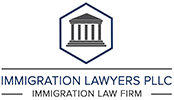Visitor visas are for people who want to visit the U.S. temporarily for tourism, medical, or limited business purposes.
What can you do with a B-1 visa?
Generally, you can:
1. Consult with business associates;
2. Attend a scientific, educational, professional, or business convention or conference;
3. Settle an estate; or
4. Negotiate a contract.
For more details, please see the following explanation by the U.S. Department of State: http://travel.state.gov/content/dam/visas/BusinessVisa%20Purpose%20Listings%20March%202014%20flier.pdf.
What can you do with a B-2 visa?
Generally, you can:
1. Visit family, friends, or tourist attractions;
2. Participate in social events;
3. Receive medical treatment;
4. Participate as amateur in musical, sports, or similar events or contests, provided that you are not being paid; or
5. Enroll in a short recreational course of study, provided that you do not receive any credit toward a degree.
For more details, please see the following explanation by the U.S. Department of State: http://travel.state.gov/content/dam/visas/VisaFlyer_March_2014_print.pdf.
What activities are NOT permitted on B-1/B-2 visas?
1. Study;
2. Employment;
3. Paid performances, or any professional performance before a paying audience;
4. Work as a foreign press, radio, film, journalist, or other media;
5. Arrival as a crewmember on a ship or aircraft; or
6. Permanent residence in the U.S.
How to apply
Generally, you have to submit an On-line Non-immigrant Visa Application (DS-160), valid passport, photos, and supporting documents; pay an application fee; and visit the U.S. Embassy/Consulate for an interview. In order to find out more details, please visit the website of the specific U.S. Embassy/Consulate where you will be applying for a visa.
The U.S. immigration law presumes that every visitor visa applicant intends to settle down in the U.S. permanently, so when you apply for a visitor visa, you must overcome the presumption by showing the U.S. Embassy/Consulate that:
1. You plan to visit the U.S. for tourism, medical, or limited business purposes only;
2. You plan to stay in the U.S. for a specific, limited time only, and you will definitely return to your home country; and
3. You have a residence in your home country that you will not abandon, and you have strong ties---family, social, finance, employment, etc.---to your home country.
When you arrive in the U.S. with a visitor visa
When you arrive in the U.S. as visitor, you must have a passport, a B-1 or a B-2 visa, a return ticket, and supporting documents/information related to your trip (for example, invitation letter for the conference, name and address of the person you will be staying with, etc.). Once inspected and admitted into the U.S., you will be given a B-1 or a B-2 status that is 3-6 months long, which is in the discretion of the CBP officer.
Visa Waiver Program
Under the Visa Waiver Program, citizens of certain countries may be eligible to visit the U.S. for tourism, medical, or limited business purposes without a visa for up to 90 days. Please click "Visa Waiver Program" under "Temporary (Non-immigrant) Visa".



